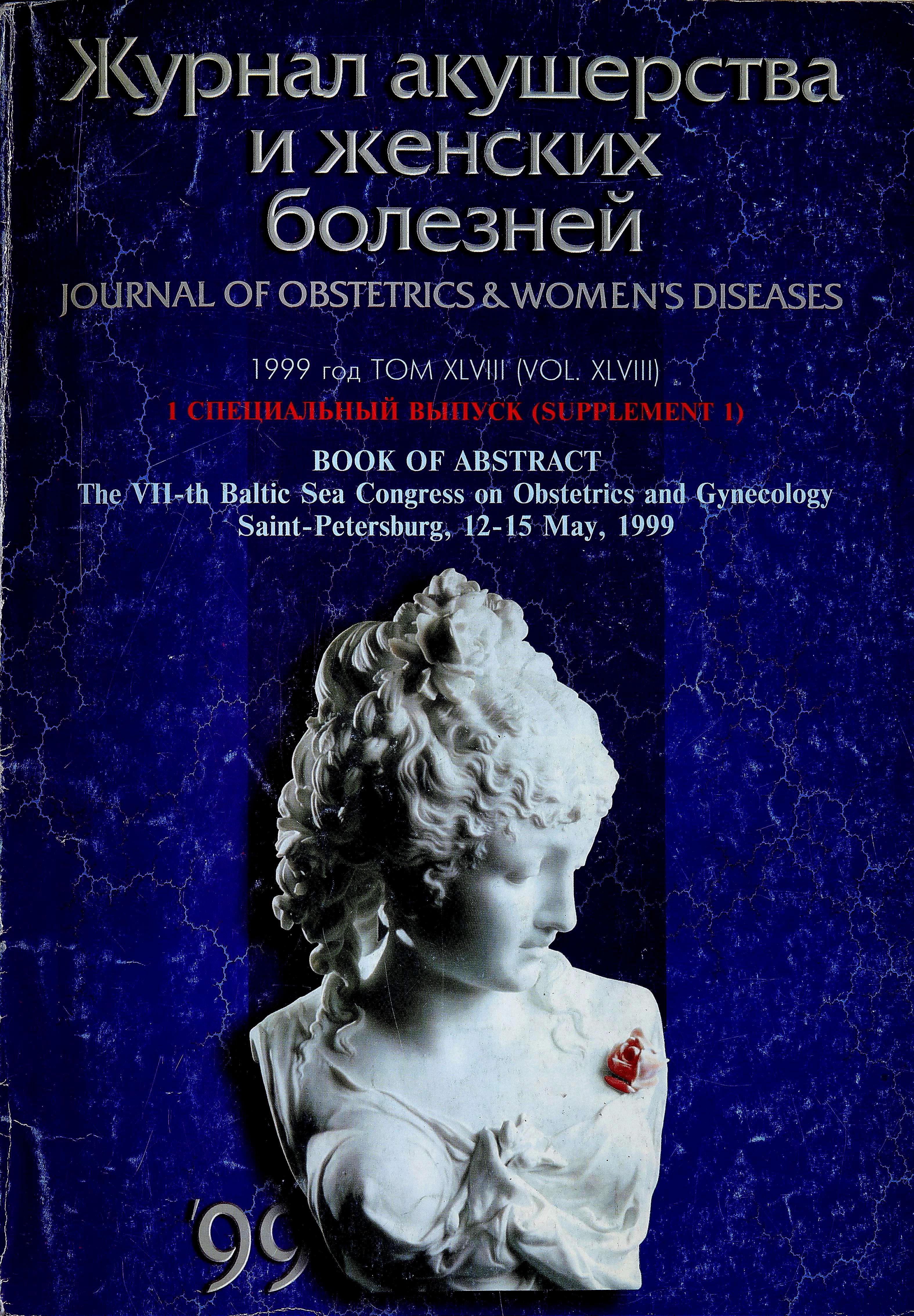Regulation of women’s milk lipids, proteins, carbohydrates secretion: effects of placental lactogen, progesterone, estriol
- Authors: Olshevskaya E.V.1, Zolotukhin N.S.1, Miroshnikova T.S.1, Ukrainsky D.Y.1
-
Affiliations:
- Medical University
- Issue: Vol 48, No 5S (1999)
- Pages: 120-120
- Section: Articles
- Submitted: 20.02.2022
- Accepted: 20.02.2022
- Published: 15.12.1999
- URL: https://journals.eco-vector.com/jowd/article/view/101270
- DOI: https://doi.org/10.17816/JOWD101270
- ID: 101270
Cite item
Full Text
Abstract
Biological qualities of women's milk promote fast adaptation of born to extrauterine existence. Placental lactogen (PL) influences the receptors of prolactin to support high level of carbohydrates in milk. The synthesis of proteins and lipids of milk is made under the stimulating influence on mamma estriol (E3) and progesteron (PG).
Keywords
Full Text
Biological qualities of women 's milk promote fast adaptation of born to extrauterine existence. Placental lactogen (PL) influences the receptors of prolactin to support high level of carbohydrates in milk. The synthesis of proteins and lipids of milk is made under the stimulating influence on mamma estriol (E3) and progesteron (PG).
Objective. To investigate the influence of hormonal activity of the women with late gestosis on concentration of proteins, lipid, carbohydrates in milk.
Methods. The concentration of hormones and the qualitative parameters of milk have been investigated with 34pregnant women with late gestosis in the period of 34-40 weeks, who had chronical infectional-inflamatory extargenital and genital diseases. The group under control consisted of 18 women with normal pregnancy. PL, PG, E3 were radioimmunoassayed in 52 women. The standart sets of medical substances produced by IBOC, NAS of Byelorussia (Minsk) were used. Proteins were investigated by Lowri's method, lipids and carbogydrates - by Lokhem's sets in 3-4 and 6-7 days of the postpatum period. The results are tested by the methods of the variational statistics.
Results. According to the results of the investigation of the hormonal status in phisiological normal pregnancy next data are received: PL - 271,2 (24,3 nmol/l, PG - 673,23 (50,74 nmol/l, E3 -121,12 (6,02 nmol/l. The gormonal status of the pregnant women with late gestosis is greatly decreased. The differences between the groups are authentic (P<0,05). The qualitative parameters of milk in the group under control in 3-4 and 6-7 days accordingly were: proteins - 23,52 (1,24 gr/l and 17,84 (1,12 gr/l, lipids - 22,06 (0,87 gr/l and 29,32 (1,22 gr/l, carbogydrates - 23,12 (0,21 gr/l and 33,76 (0,32 gr/l (P<0,05). The parametrs of milk in the main group in the dynamics of postpatum period accordingly were: proteins - 18,621,14 gr/l and -13,191,06 gr/l (P<0,05), lipids - 17,721,34 gr/l and 18,241,15 gr/l, carbohydrates - 20,170,41 gr/l and 19,760,42 gr/l (P>0,05). The differences between the groups are authentic (P<0,05).
Conclusion. In the process of formation of lactation, the concentration of proteins is decreased, but the concentration of lipids and carbohydrates is increased with women with physiological normal pregnancy.
The investigation of milk of women with late gestosis showed low contents of qualitative ingredients in it. It was caused by low concentration of hormones in pregnancy period. In the dynamic of lactation of the women with late gestosis there is no tendency to decreasing of the content of lipids and carbohydrates.
About the authors
E. V. Olshevskaya
Medical University
Author for correspondence.
Email: info@eco-vector.com
Ukraine, Donetsk
N. S. Zolotukhin
Medical University
Email: info@eco-vector.com
Ukraine, Donetsk
T. S. Miroshnikova
Medical University
Email: info@eco-vector.com
Ukraine, Donetsk
D. Y. Ukrainsky
Medical University
Email: info@eco-vector.com
Ukraine, Donetsk
References
Supplementary files







